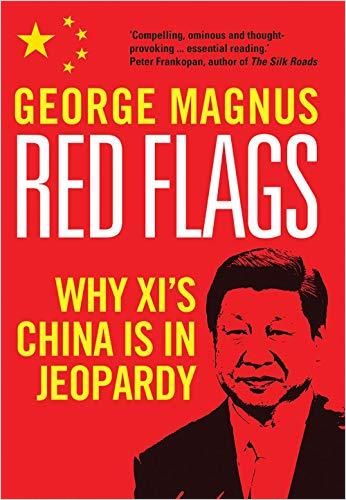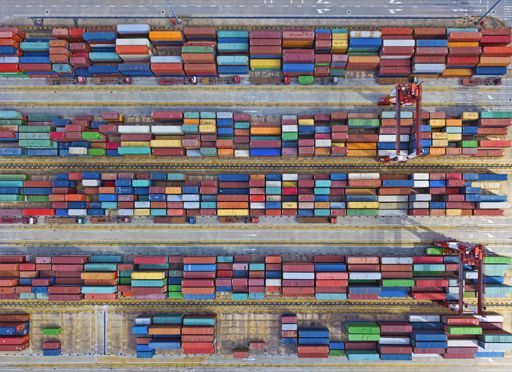Economist George Magnus offers a perceptive overview of China’s overcooked economy and the possible consequences of current Chinese policies.

Soon, A Reckoning
An associate at the China Centre at Oxford University, economist George Magnus is also a research associate at the School of Oriental and African Studies and the former chief economist at UBS. He writes that China appears to have broken the usual fiscal rules, convincing itself and the rest of the world that it can defy economic gravity. It cannot, opines Magnus, and he cites the factors – including massive debt accumulation with little return – that have propelled China’s economy but that cannot guarantee future progress. Magnus’s approach is succinct but wide in scope, encompassing history, politics, economics and finance; his may be the only book you need to understand China’s economic situation.
Echoing that view, The Wall Street Journal called this “a comprehensive and valuable survey of the threats facing China’s economy.” Kerry Brown, author of CEO, China, found it “a nuanced, historically informed and highly readable account of why we should never be complacent about the People’s Republic.” And New Statesman said the author “offers a forensic take on why the Chinese economy will continue to be bedeviled by politics and why it matters.”
Recentralizing Power
Chinese president Xi Jinping is expanding his authority and that of the Chinese Communist Party, Magnus writes. Xi and others speak of returning China to its former glory, such as when, in 1820, China accounted for one-third of global GDP. The Chinese approach all questions of trade and relations with the West, Magnus notes, as dealing with foreigners seeking to undermine the nation’s strength.
In less than 40 years, China has quintupled its share of global output and transformed itself from a poor country and source of cheap toys and textiles to a fierce competitor in high-end manufacturing, advanced technologies and military might.George Magnus
Magnus explains that, before Xi, China had embraced reforms to establish neutral business laws, market mechanisms and contractual standards. But in recent years, Magnus concludes, party officials and party-led organizations have regained power and influence, and stymied increased privatization. Officially, state-owned enterprises account for 40% of commercial assets, but Magnus reveals that government-controlled investment firms hide state ownership links within purportedly private companies.
Misguided
Magnus finds that former president Donald Trump’s approach to trade with China was misguided. But, he notes, China’s aggressive industrial policy means foreign companies operating in China experience informal nontariff barriers, and government subsidies distort the playing field in world markets. However, Magnus recognizes that, as China’s consumption levels rise, increasing purchases of services from Western countries could resolve imbalances.
We need to ask questions of China, in much the same way as we do of ourselves, and not simply nod to the assertions of those who judge, sometimes self-servingly, that the future belongs to China.George Magnus
China, Magnus cautions, builds on Western firms’ technology in a way that resembles intellectual property theft. He concludes that most of China’s high-tech output traces to foreign companies, and that much of the world remain skeptical about the quality and production processes of Chinese innovation.
China’s Belt and Road
Magnus reports that many regard this vast, ambitious project as China simply expanding its economic and geopolitical influence, as well as boosting the development of its western provinces. And inevitably, he says, many client countries complain about corruption, large debts and disagreements over questions of sovereignty related to some large projects.
Ballooning Credit
Magnus notes that China’s debt grew so fast that it made up roughly 50% of the increase in global credit from 2005 to 2016. Chinese borrowing equaled 106% of its disposable income in 2017, up from 40% in 2008.
But Magnus also cites China optimists, who feel that, in the event of a crisis, the government has resources not available to less controlled economies. China strengthened its financial restrictions, for example, when wobbling stock and property markets led to a spike in capital flight. Magnus finds that many rich Chinese continue to emigrate or place their wealth abroad. He recognizes that more state control and intrusion in nominally private companies might trigger more capital flight or reduced profitability.
Rebalance
Magnus recounts how, until recently, China’s high savings rate essentially transformed into foreign currency reserves, a portion of which was in US government securities.
The east wind is surely blowing, but so are China’s red flags. That they will have trenchant consequences for China and the world is not in doubt.George Magnus
Magnus thinks a lower savings rate – and more consumer spending – would reduce the need for constant stimulus via investments or trade surpluses. The test, Magnus maintains, will come if China experiences a downturn and the government presses on the credit-and-debt pedal to keep people in jobs, further delaying an overdue reckoning.
Restraint
Magnus’s depth of knowledge and his grasp of every corner of China’s political and economic policy could have fueled a much longer and possibly boring book. But he seeks to grant businesspeople, economists, politicians and students only the most functional information from which they can draw accurate and applicable conclusions about China and its role in world economic affairs. The effect is almost strange – but welcome: an author not telling every single thing he knows to impress readers. Magnus’s restraint is admirable and appreciated; indeed, there may be no better source for those seeking a Chinese economic overview.
Compelling analyses of the intersection of China’s politics and economics include The Third Revolution by Elizabeth C. Economy (yes, that’s really her name); The State Strikes Back by Nicholas R. Lardy; China: The Bubble That Never Pops by Thomas Orlik; and China’s Great Wall of Debt by Dinny McMahon.







